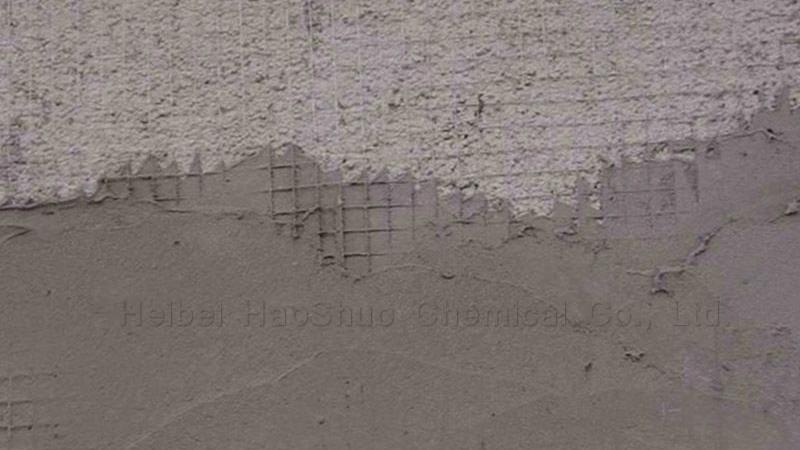Hydroxypropyl Methyl Cellulose (HPMC) is an important admixture used in drymix mortars to emphasize problems such as water retention workability. HPMC plays a major role, especially in construction projects that require high efficiency and quality. Obviously, its advantages are the foundation elements that make HPMC an essential building material in today’s construction.
Understanding the Importance of Water Retention in Mortars
Excellent water retention characteristics are greatly valued in drymix mortars, particularly in cement-based ones. It is also reported that HPMC enhances the ability of mortars to hold water, which is necessary for correct cement hydration, and helps to avoid such unwanted effects as shrinkage and cracks. It also became evident that mortars with low water retentive capacity may reduce their strengths by as much as 30 percent if curing is inadequate. Since HPMC is included in the composition, the rate of water evaporation is controlled to allow for uniform and controlled curing.
Construction specialists note that HPMC-based mortars have a 97% water retention gain, while the original mortars’ water retention is at 75% maximum on average. This capability provides good adhesion and stable performance levels while maintaining the elements of flexibility that include tolerating high heat or wind. For instance, in tile adhesive, this feature enhances the interfacial adhesion as well as the working time or pot life extension, which is important for lining the tiles accurately.
Improving Workability for Enhanced Application
Another important factor is workability, and HPMC delivers improved performance in drymix mortars. The resolution of this property affects the applicability and uniformity of the product, as well as the quality of the final product. Because HPMC thickens the mortar, the mortar attains a uniform composition, which is desirable in application because it facilitates easier positioning and fine-tuning of the material by the workers. Whether troweled, rolled, brushed, or sprayed, the HPMC-modified mortars possess good workability, meaning that no segregation or setting of the mixture will occur.
This benefit especially proves vital in the vertical or overhead uses of the product, such as in wall plasters and tiling. In such circumstances, sag resistance is significant so that the particular material used does not slide or deform and becomes unsuitable before it sets. Through analysis, it is seen that the addition of HPMCs increases the viscosity of the mortar to the extent that it bonds well to the vertical surfaces and can be suitably applied and modeled without affecting its strength properties. This quality is particularly useful for elaborate work where the plaster is required to be streamlined, such as large format tiles that need to be bonded perfectly.
Literature review and observations made from the construction industry reveal that mortars containing HPMC have taken less time. According to the survey of construction professionals, mortars containing HPMC also decrease application time by 20-25%. This is on account of enhanced spreadability, ease of manipulation, and lesser rework occasioned by slippage or uneven thickness application. For instance, in factories that produce large-scale tiling works, where tiles are set in large areas, HPMC can offer more time to adjust such tiles without reaching the initial setting time of the grout and still achieve adequate bond strength.
Specific Applications and Benefits of HPMC
Not only have the uses of HPMCs been covered throughout the normal construction activities, but also has the uses overcome the normal ways of construction. Here are some specific use cases and the measurable benefits it provides:
There is good contact between the HPMC and the tiles, whereby the tiles do not blister from the wall after some time. Prolonged periods of openness help to sustain the workable state of the design, and this is more necessary in circumstances where the design contains many detailed descriptions.
In some cases of self-leveling compounds, HPMC has the ability to enhance the flow characteristics of the composition without affecting the stability of the same composition. This makes the end product of the organizational structure somewhat flat, with no demarcation or separation of layers in the form of positions.
For grouts, HPMC provides more appropriate qualities of bonding, influences the porosity of the grouts and provide longer sustainability of joints which bear the pressure of wear and tear.
Environmental Impact and Sustainability
Furthermore, HPMC is not only functioning but is also safe for the environment. As a material derived from cellulose, it is eco-friendly and complies with the construction industry's sustainable trends. Due to the enhancement of mortars and actualization of minimum wastage of the material, HPMC plays an extremely important role in the conservation of the environment. Moreover, the frequent reapplications and subsequent repair activity reduce overall costs for materials in the long term and make up for any additional labor costs incurred by the application of HPMC.
Choosing High-Quality HPMC for Superior Results
It is, therefore, mandatory to choose the right quality HPMC if one wants the best results in construction. Differences in the strength, thinning capability, and solubility of the mortar are critical to cement mortar performance characteristics. High-quality and credible HPMC for dry mix mortar offers construction-grade HPMC for diverse applications in dry mix mortar. Through such products, builders, and contractors can be confident that their building products will deliver better and conform to industry requirements.
Conclusion
With respect to the discrete set of technical problem areas pertinent to dry mix mortars, HPMCs have a crucial function in the enhancement of water retention and workability. Being a non-setting adjuvant to concrete, HPMC reduces water evaporation rates and enhances the formation of mortar, which leads to enhanced bonding, durability, and ease of use. Research and research substantiate the numeric advantages of HPMC that improve the water absorption capability by more than twenty percent and decrease application time by twenty-five percent. For builders asking for sustainable and efficient solutions, HPMC for dry mix mortar is an ideal option for effective solutions. For more information, visit HPMC for drymix mortar.


